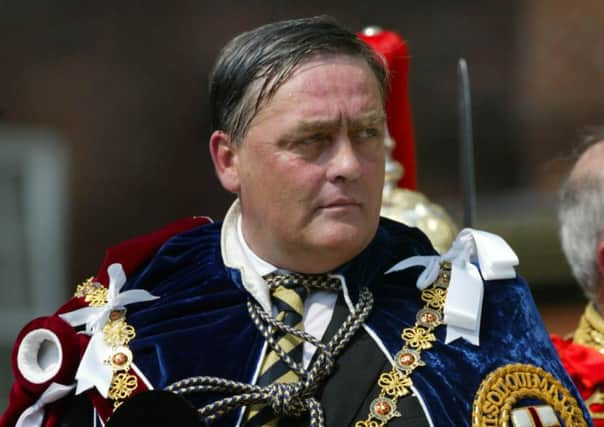Obituary: Gerald Cavendish Grosvenor


The sixth Duke of Westminster was known for taking his responsibilities as one of Britain’s wealthiest men and biggest landowners seriously.
A close friend of the Royal Family, he was a philanthropist who supported both rural and inner-city areas with links to his estate.
Advertisement
Hide AdAdvertisement
Hide AdBut he was also a private man who defied expectations and regularly spoke out on controversial issues.
Born in 1951, Gerald Cavendish Grosvenor was educated at Harrow, where he gained two O-levels, and later went to work on ranches in Australia and Canada.
He then served an informal apprenticeship in property management with a Mayfair estate agent and on the Duke of Buccleuch’s 300,000-acre Dumfriesshire estate.
In 1973, when he was 22, he became trustee of the Grosvenor Estate and was forced to abandon his dream of a career as a professional soldier in his uncle’s regiment, the 9th/12th Lancers.
He instead signed up to the Territorial Army and in 1994 received an OBE for his work as a volunteer soldier.
When his father Robert died in 1979, he became the sixth Duke of Westminster aged just 27.
He succeeded his father to become chairman of Grosvenor Holdings, the commercial arm of the Grosvenor Estate, and dedicated himself to using his wealth responsibly.
The Westminster Foundation, which manages the estate’s charitable giving, has donated to more than 1,500 charitable organisations since 1974, and the duke was also president of the RNIB for 25 years and president of the St John Ambulance forten years.
Advertisement
Hide AdAdvertisement
Hide AdHowever, as an outspoken member of the aristocracy, the Duke was also given to acts of non-conformism.
An advocate of change in the Lords, he quit the Conservative Party in 1993 after it proposed the Bill on Leasehold Reform, which would have had a huge effect on his massive London landholdings.
He also paid thousands of pounds to some of his workers to help them meet the poll tax – which he described as “insufferable”.
The duke once said that his life would have been easier if he had sold his estate to live in the Bahamas, but said that “would not be responsible”, and also insisted that he would “rather not have been born wealthy”.
In 2000, he spoke for the first time about suffering a nervous breakdown and the cloud of depression which overcame him in 1998 after the pressures of businesses and making 500 public appearances a year overcame him.
His family life has been notably private. The duke married Natalia Phillips in 1978 and they have one son and three daughters.
His wife is a godmother to the Duke of Cambridge and his only son Hugh, now the seventh duke, is Prince George’s youngest godfather.
He also spoke publicly about wanting to ensure his own children were instilled a commitment to using their wealth responsibly.
Advertisement
Hide AdAdvertisement
Hide AdSpeaking about his son and heir Hugh in 1993, he said: “He’s been born with the longest silver spoon anyone can have, but he can’t go through life sucking on it.
“He has to put back what he has been given.”
The Duke of Westminster is succeeded by his son and is also survived by his wife Natalia and daughters Lady Tamara, Lady Edwina and Lady Viola.